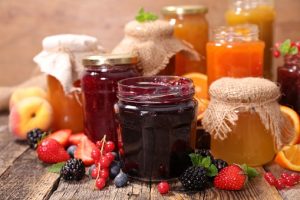
There are many factors to consider when evaluating your liver health, including alcohol consumption, fat intake, weight, and infections. Researchers suggest that in addition to these factors, the amount of fructose we consume also plays a role.
A type of sugar, fructose is commonly found in fruit and honey. So far, it has been linked to heart disease, diabetes, and other chronic diseases.
For the study, the researchers tested the outcomes of two types of sugar on metabolic and vascular function. Female rats were given a liquid solution of either glucose (a type of sugar naturally found in the body) or fructose, in addition to their regular diet.
The rats were administered the sweetened solution over the course of eight weeks, which in humans is equivalent to eating a sugar-loaded diet for six years.
The sugar-fed rats were compared to a control group that received normal drinking water.
The rats that received the sugar solution consumed more calories than the control group, although caloric intake was far greater in the glucose rats than the fructose rats. Despite this, the rats in the fructose group gained more weight that the glucose rats, had a greater triglyceride count, experienced an increase in liver weight, had a decreased fat-burning ability in the liver and impaired relaxation of the aorta (which can affect blood pressure).
The study reveals that although consuming too much sugar is detrimental to one’s health, fructose intake is associated with a greater host of health problems as it impedes on liver function.
Here is a list of foods to be mindful of if you’re trying to keep your fructose intake under control:
- Fruit and fruit juices: apple, cherry, grape, guava, litchi, mango, melon (honeydew and watermelon), orange, papaya, pear, persimmon, pineapple, quince, star fruit. Cooked fruit generally have lower fructose content than uncooked fruit.
- Most dried fruit, including currant, dates, figs, raisins.
- Processed fruit: barbecue / braai sauce, chutney, fruit from cans / tins (often in pear juice), plum sauce, sweet and sour sauce, tomato paste.
- Berries in larger quantities: blueberry, raspberry.
- Sweets, food and drinks with very high sucrose (table sugar) content and with high fructose corn syrup (HFCS).
- Honey, maple syrup.
- Vegetables in larger quantities (fructans or inulin content): artichoke, asparagus, beans, broccoli, cabbage, chicory, dandelion leaves, garlic, leek, onion, peanuts, tomato, zucchini.
- Sweet wines: e.g. dessert wines, muscatel, port, sherry.
- Wheat and rye-based products (fructan content): flour, pasta, bread, wheat bran, whole grain breakfast cereals.
- Whole-meal products in large amounts.
Although many of the foods on this list are normally considered healthy, you still have to mind your intake if you want to keep your liver in top-notch condition.